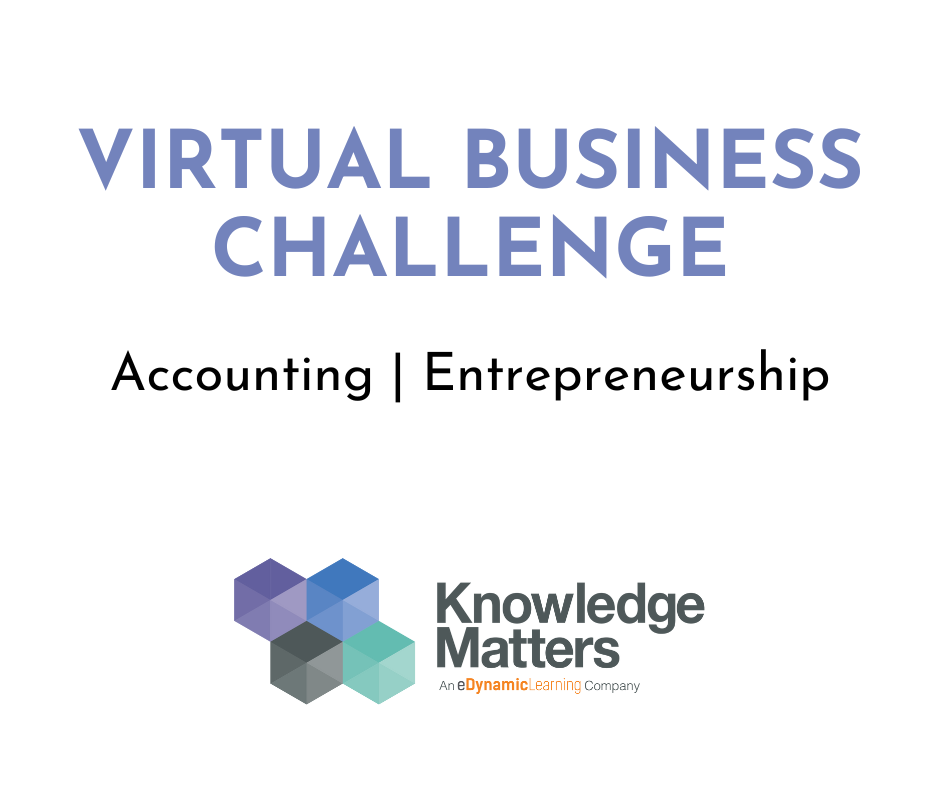Virtual entrepreneurship involves launching and managing businesses online. It leverages digital platforms to reach and serve customers globally.
Virtual entrepreneurship offers numerous opportunities for aspiring business owners. With minimal overhead costs, entrepreneurs can start their ventures from anywhere. Digital tools and platforms like e-commerce websites, social media, and online marketplaces make it easier to connect with a broader audience.
This business model provides flexibility, allowing entrepreneurs to work on their own schedules. It also enables rapid scalability and growth. The virtual landscape is ever-evolving, requiring entrepreneurs to stay updated with trends and technologies. Embracing virtual entrepreneurship can lead to innovative business solutions and a competitive edge in the digital market.
The Rise Of Virtual Entrepreneurship
The digital age has transformed the business landscape. Entrepreneurs now leverage the internet to create thriving online ventures. This shift has given birth to a new era of business opportunities.
A New Era Of Business
The internet has opened doors to endless possibilities. Virtual entrepreneurship allows people to operate businesses without physical locations. This reduces overhead costs and increases flexibility. Entrepreneurs can now reach a global market from their homes.
Technology plays a crucial role in this transformation. Tools like e-commerce platforms, social media, and cloud computing make it easier to start and run a business online.
Key Drivers Of Online Ventures
Several factors drive the rise of virtual entrepreneurship. Understanding these can help you succeed in the online business world.
- Low Startup Costs: Starting an online business is cheaper. You save on rent, utilities, and physical inventory.
- Global Reach: The internet connects you to customers worldwide. You can sell your products or services to anyone, anywhere.
- Flexible Work Environment: Work from home or while traveling. You set your own schedule.
- Access to Tools and Resources: Numerous online tools can help you manage and grow your business.
- Increased Consumer Trust: More people are shopping online. The demand for online services is growing rapidly.
These drivers make virtual entrepreneurship appealing and accessible. The barriers to entry are lower, and the potential rewards are high.
| Key Driver | Benefit |
|---|---|
| Low Startup Costs | Reduced financial risk and investment |
| Global Reach | Access to a larger customer base |
| Flexible Work Environment | Increased work-life balance |
| Access to Tools and Resources | Streamlined business operations |
| Increased Consumer Trust | Higher online sales potential |
Embrace these drivers to build a successful online business. Virtual entrepreneurship is the future of business.
Identifying Your Niche
Finding the right niche is crucial for virtual entrepreneurship. It helps you target the right audience and solve specific problems. This section will guide you through assessing market demand and leveraging personal expertise to identify your niche.
Assessing Market Demand
Understanding market demand is the first step. You need to know what people want and are willing to pay for. Use tools like Google Trends and Keyword Planner to find popular searches.
- Identify trending topics in your industry.
- Analyze search volume for related keywords.
- Check social media trends and discussions.
Look at your competitors. See what they offer and how they market it. This helps you understand gaps in the market. Fill these gaps with your unique offering.
Leveraging Personal Expertise
Your skills and knowledge are valuable. They can set you apart from competitors. Make a list of your strengths and experiences. See how they align with market demand.
| Strength | Market Demand |
|---|---|
| Writing Skills | High demand for content creation |
| Graphic Design | Growing need for visual content |
| Technical Knowledge | Rising demand for tech solutions |
Combine your strengths with market needs. This creates a unique niche for your business.
Use your expertise to offer value. This builds trust and attracts your target audience.
Crafting A Business Plan For Virtual Entrepreneur
Crafting a business plan is crucial for any virtual entrepreneur. It acts as a roadmap guiding you through each stage of your business. A solid plan helps secure funding and ensures you meet your goals. Let’s break down the key elements of a successful business plan.
Setting Clear Objectives
Setting clear objectives is the first step. Define what you want to achieve. Your objectives should be specific, measurable, achievable, relevant, and time-bound (SMART).
- Specific: Clearly define what you want to accomplish.
- Measurable: Ensure you can track your progress.
- Achievable: Set realistic goals.
- Relevant: Align your goals with your business vision.
- Time-bound: Set a deadline for each goal.
By setting clear objectives, you create a path to success. This approach keeps you focused and motivated.
Financial Projections And Funding
Financial projections and funding plans are vital. They help determine the viability of your business. Start by estimating your startup costs and operating expenses.
| Cost Type | Estimated Amount |
|---|---|
| Startup Costs | $5,000 |
| Operating Expenses | $2,000/month |
Next, project your revenue for the first year. This includes sales forecasts and other income sources. Use this information to create a cash flow statement.
- Estimate monthly revenue.
- Subtract operating expenses.
- Calculate net profit.
Finally, identify potential funding sources. These can include personal savings, loans, grants, or investors.
- Personal Savings
- Small Business Loans
- Government Grants
- Angel Investors
A well-thought-out financial plan increases your chances of securing funding. It also ensures you have the resources to grow your business.
Building Your Online Presence
Building a strong online presence is vital for virtual entrepreneurs. It helps you reach a wider audience and showcase your expertise. Let’s explore key strategies for creating a powerful online presence.
Creating A User-friendly Website
Your website is your digital storefront. It must be user-friendly and engaging. Here are some essential tips:
- Simple Navigation: Ensure users can easily find information.
- Responsive Design: Your website should work on all devices.
- Fast Load Time: A slow website drives users away.
- Clear Call-to-Action: Guide visitors on what steps to take next.
A well-designed website boosts credibility. It also helps in retaining visitors.
Utilizing Social Media Effectively
Social media platforms are powerful tools for virtual entrepreneurs. They help you connect with potential customers. Here are some tips to use social media effectively:
- Choose the Right Platforms: Focus on platforms where your audience is active.
- Post Consistently: Regular updates keep your audience engaged.
- Engage with Followers: Respond to comments and messages promptly.
- Share Valuable Content: Provide useful and relevant information to your audience.
Using social media correctly can increase your brand’s visibility. It also helps in building a loyal customer base.
Mastering Digital Marketing
Digital marketing is crucial for virtual entrepreneurs. It helps them reach a wider audience. Mastering digital marketing can boost your online business. Let’s dive into some key aspects like SEO and content marketing.
Seo Best Practices
SEO stands for Search Engine Optimization. It helps your website rank higher on search engines. Here are some best practices:
- Keyword Research: Find the right keywords for your niche.
- On-Page SEO: Optimize your titles, meta descriptions, and headers.
- Quality Content: Create valuable and relevant content.
- Backlinks: Get links from other reputable websites.
- Mobile Optimization: Ensure your site works well on mobile devices.
Following these practices will improve your search engine rankings. This leads to more traffic and potential customers.
Engaging Content Marketing
Content marketing involves creating valuable content to attract your audience. Here are some tips for engaging content marketing:
- Know Your Audience: Understand who your readers are.
- Create High-Quality Content: Make content that provides value.
- Use Visuals: Include images, videos, and infographics.
- Be Consistent: Post regularly and maintain a content calendar.
- Promote Your Content: Share your content on social media and other platforms.
Creating engaging content keeps your audience interested. It also helps build trust and authority in your niche.
| SEO Best Practices | Engaging Content Marketing |
|---|---|
| Keyword Research | Know Your Audience |
| On-Page SEO | Create High-Quality Content |
| Quality Content | Use Visuals |
| Backlinks | Be Consistent |
| Mobile Optimization | Promote Your Content |

Credit: coterie.global
E-commerce Optimization
E-commerce Optimization is crucial for virtual entrepreneurs. It helps increase conversions and customer satisfaction. By focusing on key areas, you can boost your online store’s performance.
Streamlining The Checkout Process
A smooth checkout process reduces cart abandonment. Make it easy for users to complete their purchases. Here are some tips to streamline your checkout:
- Minimize Steps: Reduce the number of steps in the checkout process.
- Guest Checkout: Allow users to checkout without creating an account.
- Auto-Fill Forms: Use auto-fill to speed up form completion.
- Clear Error Messages: Provide clear and helpful error messages.
Enhancing User Experience
Improving the user experience keeps customers coming back. A positive experience can lead to higher sales and repeat customers. Consider these strategies:
- Mobile Optimization: Ensure your site is mobile-friendly.
- Fast Loading Times: Optimize images and scripts for faster loading.
- Easy Navigation: Use clear and intuitive navigation menus.
- Quality Product Images: Provide high-resolution images of your products.
Below is a table summarizing key points for e-commerce optimization:
| Aspect | Action |
|---|---|
| Checkout Process | Minimize steps, guest checkout, auto-fill forms, clear error messages |
| User Experience | Mobile optimization, fast loading times, easy navigation, quality images |
Leveraging Automation And Ai
Virtual entrepreneurship offers an exciting frontier for business innovation. By leveraging automation and AI, entrepreneurs can streamline operations and enhance customer experiences. This section delves into how these technologies can revolutionize virtual businesses.
Improving Efficiency With Technology
Automation tools can handle repetitive tasks easily. This frees up time for strategic activities. AI algorithms can analyze data faster than humans. This leads to quicker decision-making.
Chatbots can manage customer inquiries 24/7. They ensure that no query goes unanswered. Automated email marketing can send tailored messages. This keeps customers engaged without manual effort.
Personalizing The Customer Journey
AI can analyze customer behavior patterns. This helps in creating personalized experiences. Each customer feels unique and valued.
Using machine learning, businesses can predict customer preferences. This allows for customized product recommendations. Personalized emails can increase engagement and loyalty. Customers appreciate the individualized attention.
Virtual assistants can guide customers through the purchasing process. They make the journey smooth and enjoyable. This leads to higher satisfaction and retention rates.
| Technology | Function | Benefit |
|---|---|---|
| Chatbots | Customer Support | 24/7 Availability |
| AI Analytics | Data Analysis | Quick Decisions |
| Automation Tools | Task Management | Efficiency |
Networking And Collaboration
Networking and collaboration are essential for virtual entrepreneurs. They help you grow and scale your business. Collaborating with others opens doors to new opportunities. Networking builds lasting relationships with other professionals.
Building Strategic Partnerships
Strategic partnerships can be a game-changer. They help you reach a wider audience. They also provide access to new resources and skills. Look for partners who share your vision. Mutual goals and values are important. Create a win-win situation for both parties.
- Identify potential partners in your industry.
- Reach out with a clear proposal.
- Discuss mutual benefits and goals.
- Set clear terms and conditions.
Community Engagement And Support
Engaging with your community builds trust and loyalty. Be active on social media. Join online groups and forums. Share valuable content and insights. Answer questions and offer support. Building a supportive community can lead to more business opportunities.
| Activity | Benefits |
|---|---|
| Social Media Engagement | Increases brand awareness |
| Joining Online Groups | Expands your network |
| Sharing Valuable Content | Positions you as an expert |
| Offering Support | Builds community trust |
Scaling Your Business
Scaling your virtual business is a vital phase of growth. It requires strategic planning and precise execution. With the right approach, you can expand effectively and handle increased demand. This section will explore essential growth strategies and how to manage increased demand.
Growth Strategies
To scale your business, you need proven growth strategies. Start by analyzing your current performance. Identify areas where you excel and where you can improve. Focus on your strengths and build on them.
- Expand your market reach: Use digital marketing to reach new customers. Social media, SEO, and email campaigns can help.
- Enhance your product or service: Improve quality and add new features. This can attract more customers and retain existing ones.
- Optimize your operations: Streamline processes to improve efficiency. Use automation tools to save time and reduce errors.
Managing Increased Demand
As your business grows, managing increased demand is crucial. You need to ensure your operations can handle more customers and orders.
- Boost your workforce: Hire more staff to meet the demand. Ensure they are well-trained and efficient.
- Improve your infrastructure: Upgrade your technology and systems. This can help you manage higher volumes smoothly.
- Maintain quality control: Ensure your products or services remain high-quality. Consistency is key to customer satisfaction.
| Strategy | Description | Action |
|---|---|---|
| Market Expansion | Reach new customers via digital channels. | Use SEO and social media marketing. |
| Product Enhancement | Improve quality and add features. | Conduct customer surveys to identify needs. |
| Operational Optimization | Streamline processes and use automation. | Adopt relevant software tools. |
Legal Considerations And Compliance
Embarking on a journey of virtual entrepreneurship brings exciting opportunities. However, understanding the legal landscape is crucial. Entrepreneurs must navigate various legal considerations and compliance requirements. This ensures their online business operates smoothly and lawfully. Let’s delve into some essential aspects.
Understanding Regulations
Every country has unique regulations governing online businesses. Entrepreneurs must identify the rules applicable to their industry. Key areas to consider include:
- Licensing Requirements: Ensure you have necessary permits and licenses.
- Tax Obligations: Register for taxes and understand your tax duties.
- Data Protection: Comply with laws like GDPR for handling personal data.
Staying informed about these regulations helps avoid penalties and build trust with customers.
Protecting Intellectual Property
Protecting your intellectual property (IP) is vital in the digital realm. IP includes creations like:
- Trademarks: Protect your brand name and logo.
- Copyrights: Safeguard original content, such as articles and designs.
- Patents: Secure your unique inventions or products.
Registering your IP can prevent unauthorized use and legal disputes. Consider consulting an IP attorney for guidance.
Measuring Success And Kpis
Understanding how to measure success is crucial for virtual entrepreneurs. Key Performance Indicators (KPIs) help track progress and identify areas for improvement. This section will guide you through analyzing data and choosing the right metrics for long-term sustainability.
Analyzing Data For Improvement
Data analysis can reveal important trends and patterns in your business. Use tools like Google Analytics to track website traffic, user behavior, and conversion rates. Pay close attention to:
- Traffic Sources: Know where your visitors come from.
- Bounce Rate: Identify pages where visitors leave quickly.
- Conversion Rate: Track how many visitors become customers.
Regularly reviewing these metrics helps improve your strategies and align them with business goals. Create a dashboard to visualize your data for quick insights.
Long-term Sustainability Metrics
Focus on metrics that ensure long-term sustainability. These metrics often include:
| Metric | Description |
|---|---|
| Customer Lifetime Value (CLV): | Measures the total worth of a customer over their lifetime. |
| Churn Rate: | Tracks the percentage of customers who stop using your service. |
| Monthly Recurring Revenue (MRR): | Calculates predictable revenue from subscriptions each month. |
Monitoring these metrics helps you plan for growth and financial stability. Set realistic targets and review them regularly to stay on track.

Credit: www.knowledgematters.com
Staying Ahead Of The Curve
Staying ahead of the curve in virtual entrepreneurship is crucial. It ensures long-term success and growth. Entrepreneurs must be proactive. They must embrace changes and new trends. Staying updated with the latest advancements is key.
Continuous Learning And Adaptation
Continuous learning is essential. The virtual world changes rapidly. Entrepreneurs must learn new skills regularly. Online courses and webinars help. They provide updated knowledge and skills. Networking with industry experts is beneficial. It opens doors to new insights.
Adaptation is equally important. Businesses must evolve with market demands. Flexibility allows for quick adjustments. This ensures businesses stay relevant. Regular feedback from customers guides necessary changes. It helps in understanding market needs better.
Innovating For The Future
Innovation drives growth. Entrepreneurs must think ahead. They should explore new technologies. Investing in R&D (Research and Development) is wise. It fosters new product ideas. Staying innovative sets businesses apart. It attracts more customers.
Collaboration boosts innovation. Working with other professionals sparks creativity. It leads to unique solutions. Encouraging a culture of innovation within the team is helpful. It motivates employees to contribute new ideas. This creates a dynamic and forward-thinking business environment.
| Strategy | Benefits |
|---|---|
| Continuous Learning | Stays updated with trends |
| Adaptation | Keeps business relevant |
| Innovation | Drives growth and attracts customers |

Credit: bpa.org
Frequently Asked Questions
What Is A Virtual Entrepreneur?
A virtual entrepreneur runs a business online, using digital tools and platforms to manage operations and sales remotely.
What Do You Do In Virtual Enterprise?
In a virtual enterprise, we collaborate online to develop products, manage projects, and provide services. We use digital tools to communicate, share files, and streamline workflows.
What Is A Metaverse Entrepreneur?
A metaverse entrepreneur creates, develops, and operates businesses within virtual worlds. They leverage digital platforms for innovation.
How To Start A Virtual Startup?
To start a virtual startup, identify a niche, create a business plan, build a website, and leverage social media. Use tools like Slack and Zoom for team communication. Secure funding and focus on digital marketing.
Conclusion
Embracing virtual entrepreneurship opens doors to global opportunities. It reduces costs and enhances flexibility. By leveraging digital tools, entrepreneurs can innovate and grow. Stay adaptable and persistent to succeed in the virtual business landscape. Virtual entrepreneurship is the future, offering boundless potential for those ready to seize it.


